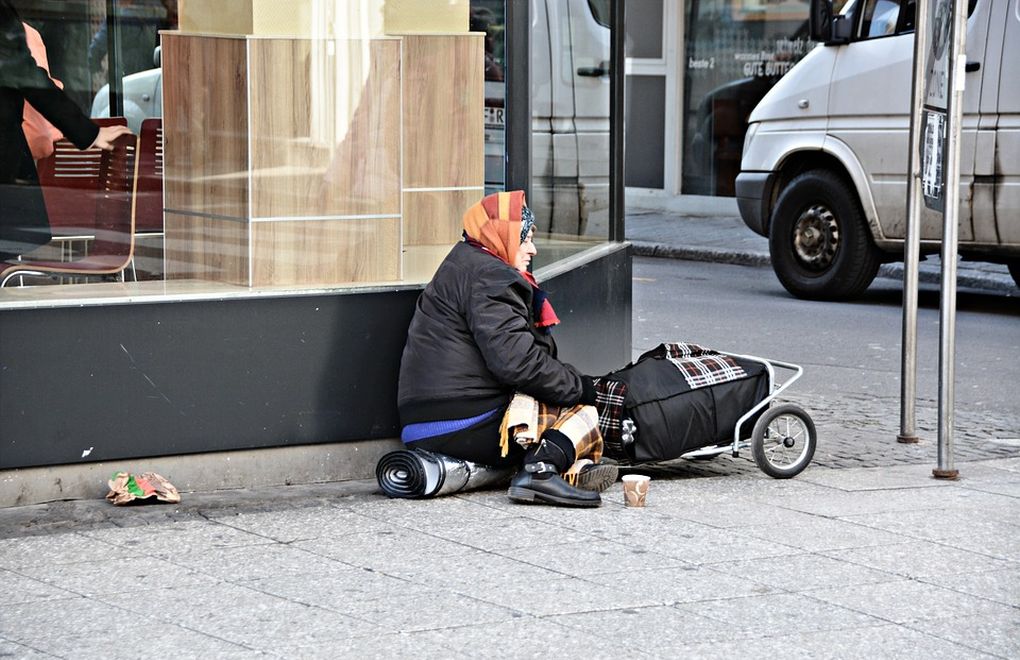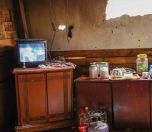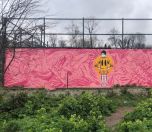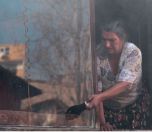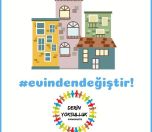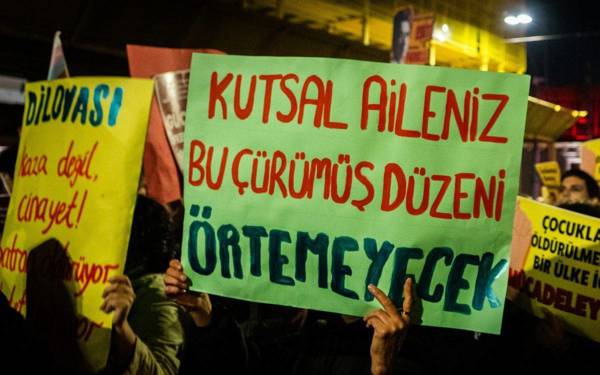* Photo: Pixabay
Click to read the article in Turkish
"In some neighborhoods of İstanbul, there are some parents living in shacks that they call home and unable to sleep at night, fearing that their children will be bit by mice... There is uncle Şahin, who leaves his sick grandson at home and goes out on the streets, thinking, 'Maybe I can collect some paper and buy the kid some ayran to drink.'
"They are trying to hold on to life in some way. But the outbreak has made their already difficult living conditions utterly impossible for them.
"In the time of pandemic, there are families trying to fight with such a chronic and permanent poverty, which is ignored by the public..."
It is Elif Göçmen from the Deep Poverty Network speaking.
Göçmen works as a volunteer for the network which has reached poor citizens in İstanbul, especially during the novel coronavirus (COVID-19) outbreak, and tried to solve their problems.
Speaking to bianet about the "scenes of poverty" from İstanbul, Göçmen stresses the "invisible" side of poverty and calls on everyone to solidarize.
'Pandemic has brought about new poor families'
When they analyzed the findings from their fieldwork in December 2019, they saw that what was standing before their eyes had to be called "deep" or "abject poverty", says Göçmen. This notion refers to the people who do not have a home to stay and face hunger.
After that, the Deep Poverty Network has started thinking about what can be done to alleviate this poverty. "The 'deep poverty' that we saw with the onset of the outbreak in March was noticed by a wide majority of people with the cry of 'Do you have any spare food'," she says.
'Unpaid leave aggravates poverty'
The network started calling the families after the outbreak reached Turkey in March 2020 and asked them what they were doing, if they had any problems and whether they were laid off or not. After a short while, they realized that the problem was more widespread than expected:
"In a few days, the incomes of people working on the street, selling bagels, collecting paper, selling flowers, peddling and working on a daily basis have disappeared much more quickly than we could ever expect.
"With the unpaid leaves granted to construction workers, domestic workers, cooks, waiters, hotel personnel, cleaning workers and textile workers, the problem has taken on an unprecedented dimension.
"The families that we knew from the neighborhoods where we had worked started calling us. Some said their siblings were dismissed, our sponsors guided the families who came to their houses for cleaning. Those doing delivery work for markets gave us information like, 'There is this aunt and uncle in such and such neighborhood, he or she seems to need help.'
"The ones living in those neighborhoods shared their scarce food with the ones in need until that time, but they now did not have food, either. There were people that we had been working with for a long time and managed to put their lives and means together. They started calling us as well.
"For instance, a person who actually called us for her own needs started warning us, saying, 'We have a refugee family living downstairs, their baby has no diapers.' Those who had never received social relief, but were now dismissed from their jobs or made to take an unpaid leave - namely, the "new poor" families - also started calling in that period."
'The poor live in neighborhoods next to the rich'
According to the findings of the Deep Poverty Network, the neighborhoods where families who have been poor for generations are mostly located in the districts of Esenyurt, Şişli, Çekmeköy, Ataşehir,Sancaktepe, Sultanbeyli, Kağıthane ve Ümraniye, Fatih and Arnavutköy.
"In fact, there is poverty in all parts of the city," Göçmen comments on this information and adds: "There are families living in shacks just next to a district with luxurious houses like Çekmeköy or Ataşehir."
'White collar workers have become poorer, too'
With the outbreak of the pandemic, a new period started in terms of poverty, Göçmen says and explains her remarks as follows:
"We have witnessed a new type of impoverishment in this process. It is a poverty that has come up as white collar workers working in high rise buildings were dismissed from their jobs. The shock experienced by these people was the same as the shock that another person found himself in after his textile workshop was closed. It is an abrupt impoverishment as he or she has never applied for aid and does not know what to do and how."
'Some families faced with risk of homelessness'
Food, baby diapers, baby food and cleaning products constitute the majority of the aid provided by the Deep Poverty Network. The recent "normalization" does not change anything, either. Problems are getting deeper and more aggravated. Göçmen explains this as follows:
"They are forced out of their homes. There is a family who pays 450 TRY for the rent and a householder who sustains his or her life with that 450 TRY. For instance, she could not pay the rent for 3 months because she could not sell flowers. This family is now homeless. Some people have been forced out of their homes and moved in with their relatives, but these relatives are now given time, they are also faced with the risk of being homeless."
Campaigns for diapers and baby food
The network has supported around 2,000 families so far. Shopping was done for these families for at least two times, one for basic food products and the other for fresh food. It also regularly gives baby diapers and baby food to around 230 families and underpads to almost 30 families. The network also tries to organize different campaigns for diapers and baby food.
'The state should develop social policies'
Concluding her remarks, Elif Göçmen also shares her solution offers. Reminding us that they are working on abject poverty in the city, Göçmen says, "It is not a fate, poverty should not be transferred from parents to children, children need to have a future, hopes and dreams."
Referring to the aid granted by the network so far, Göçmen also underlines that "the state needs to develop more social policies" to alleviate poverty.
"Their primary goal must be to address income injustice and to struggle against poverty from a rights-based perspective," Göçmen says and calls on everyone to solidarize in the face of poverty: "Deep poverty should not be the problem of us, but the problem of all of us." (EMK/SD)





